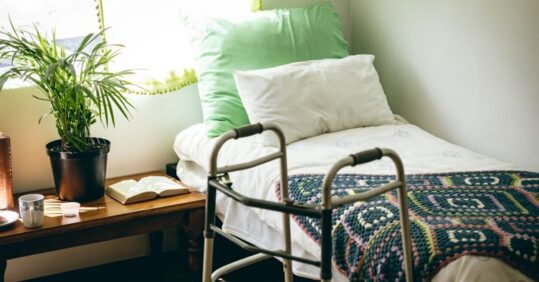Orders not to resuscitate used in care homes incorrectly ‘because of pressure’

Unprecedented pressure on care homes and ‘confusing’ guidance may have led to ‘unacceptable’ use of do not resuscitate orders at the beginning of the Covid-19 pandemic, a CQC review has found.
‘Inappropriate’ use of cardiopulmonary resuscitation (DNACPR) orders included applying them in an unlawful ‘blanket’ way, where it was applied to groups of people, the interim report from the England’s Care Quality Commission (CQC) out today concluded.
The regulator said the incorrect use of DNACPRs ‘could have had an impact, including potentially avoidable death, on older people and disabled people living in care homes’.
Related Article: Funded nurse workforce plan needed for neighbourhood health services
It also warned it was possible care homes were still applying orders and asked care providers ‘to assure themselves that DNACPR decisions have been made appropriately’.
Between March and September, it received 40 submissions about DNACPR orders from the general public, compared with nine during the previous six months.
These complaints largely concerned DNACPRs put in place without consulting the person or family, but some were about orders placed on numerous people routinely.
The report also stated: ‘There was confusion and miscommunication about the application of DNACPRs at the start of the pandemic, and a sense of providers being overwhelmed.’
It highlighted that stakeholders referenced ‘confusion at the start of the pandemic’. It also cited reports of some GPs ‘putting blanket DNACPRs on care homes’. A couple of stakeholders said: ‘GP practices were overwhelmed and overloaded at the time’.
Related Article: Nurse had to ‘freeze’ PPE during pandemic to re-use in care home, Covid inquiry hears
For example, it noted that NICE guidance on 20 March – which ‘intended to help clinicians assess frailty as part of a wider, holistic assessment around the appropriateness of critical care’ – was interpreted by some to mean that ‘disabled people who were not ‘frail’ would be denied access to critical care’.
DNACPR decisions and advance care plans should only ever take place with clear involvement of the individual, or an appropriate representative, with clear understanding. It is unacceptable for decisions to be applied to groups of people of any description.
CQC chief inspector of primary medical services and integrated care Rosie Benneyworth said: ‘It is unacceptable for clinical decisions – decisions which could dictate whether someone’s loved one gets the right care when they need it most – to be applied in a blanket approach to any group of people.
‘Sadly, in the experiences that people have generously shared with us there is very real concern that decisions were made which not only overlooked the wishes of the people they affected, but may have been made without their knowledge or consent.’
Related Article: More nursing apprenticeships and changes to student travel expenses
The CQC announced in October that it would review how DNACPR decisions were made during the Covid-19 pandemic, following a request by the Department of Health and Social Care.
It will now undertake fieldwork in seven CCGs across the country, focusing on the experiences of older people and people with a learning disability or autism, with a final report due to be published in early 2021.

See how our symptom tool can help you make better sense of patient presentations
Click here to search a symptom




